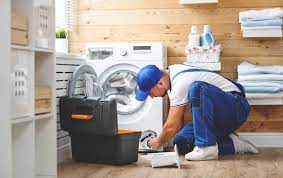Appliance Maintenance 101: Tips to Prolong the Lifespan of Your Home Devices
Your home appliances are essential investments that contribute to the comfort and functionality of your daily life. To ensure they continue to serve you well for years to come, proper maintenance is key. In this comprehensive guide, we’ll delve into effective appliance maintenance tips to extend the lifespan of your devices. From routine cleaning to timely inspections, we’ll cover everything you need to know to keep your appliances running smoothly and efficiently.
Read the Manufacturer's Manual
The manufacturer’s manual provides valuable insights into your appliance’s specific maintenance requirements. Familiarize yourself with the manual to understand recommended cleaning procedures, replacement schedules, and potential troubleshooting tips. Keeping your appliances in line with the manufacturer’s guidelines can prevent premature wear and tear and ensure optimal performance.
Regular Cleaning and Maintenance
Regular cleaning is essential to maintain the efficiency and longevity of your appliances. Clean filters in air conditioners, refrigerators, and range hoods to prevent clogs and improve airflow. Remove lint from dryer vents to enhance drying efficiency and reduce the risk of fire hazards. Dust and wipe down surfaces of all appliances to prevent dirt buildup and maintain a hygienic environment.
Optimal Refrigerator Maintenance
A well-maintained refrigerator not only keeps your food fresh but also extends its lifespan. Ensure proper temperature settings and avoid overloading the refrigerator to maintain consistent cooling. Regularly defrost freezers to prevent ice buildup, and check door seals for any leaks that can lead to temperature fluctuations and increased energy consumption.
Dishwasher Care and Efficiency
To optimize your dishwasher’s performance, scrape off excess food particles from dishes before loading them. Clean the dishwasher’s filter regularly to prevent clogs and ensure proper drainage. Run an empty dishwasher cycle with vinegar to remove any accumulated residue and maintain fresh-smelling interiors.
Washing Machine Maintenance
Prevent mold and mildew growth in your washing machine by leaving the door open after each use to allow for proper ventilation. Clean the detergent dispenser and rubber gasket regularly. Avoid overloading the machine, and use the appropriate amount of detergent to maintain efficient cleaning results.
Oven and Range Maintenance
Keep your oven and range in top shape by wiping spills and splatters after each use. Regularly clean the oven’s interior and removable components to prevent residue buildup. Check gas burners for clogs and ensure electric burners are securely connected for even heating.
HVAC System Maintenance
Your HVAC system plays a crucial role in maintaining a comfortable indoor environment. Change air filters regularly to ensure proper airflow and prevent dust accumulation. Schedule professional HVAC inspections and maintenance to identify and address potential issues before they escalate.
Timely Repairs and Professional Service
Addressing appliance issues promptly can prevent minor problems from escalating into costly repairs. If you encounter any malfunctions or unusual noises, consult the manufacturer’s manual for troubleshooting tips. If needed, seek professional service to handle complex repairs and maintenance tasks.
Effective appliance maintenance is the key to prolonging the lifespan of your home devices and getting the most out of your investments. By following these essential tips, you can ensure optimal performance, energy efficiency, and reliability from your appliances for years to come. Take the time to care for your appliances, and they will reward you with hassle-free operation and a comfortable living environment. Invest in proper maintenance today to enjoy the benefits of your well-maintained appliances well into the future.


